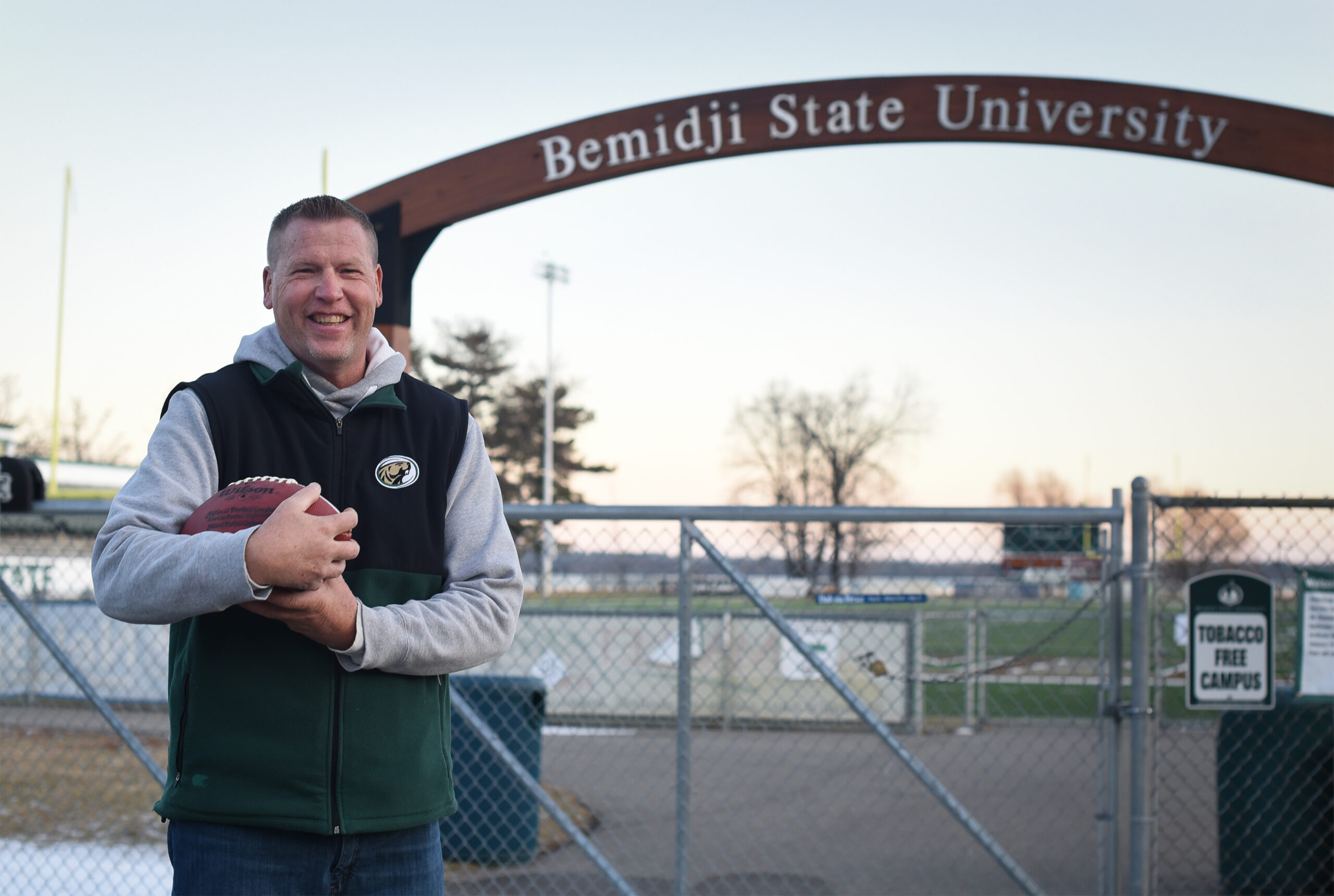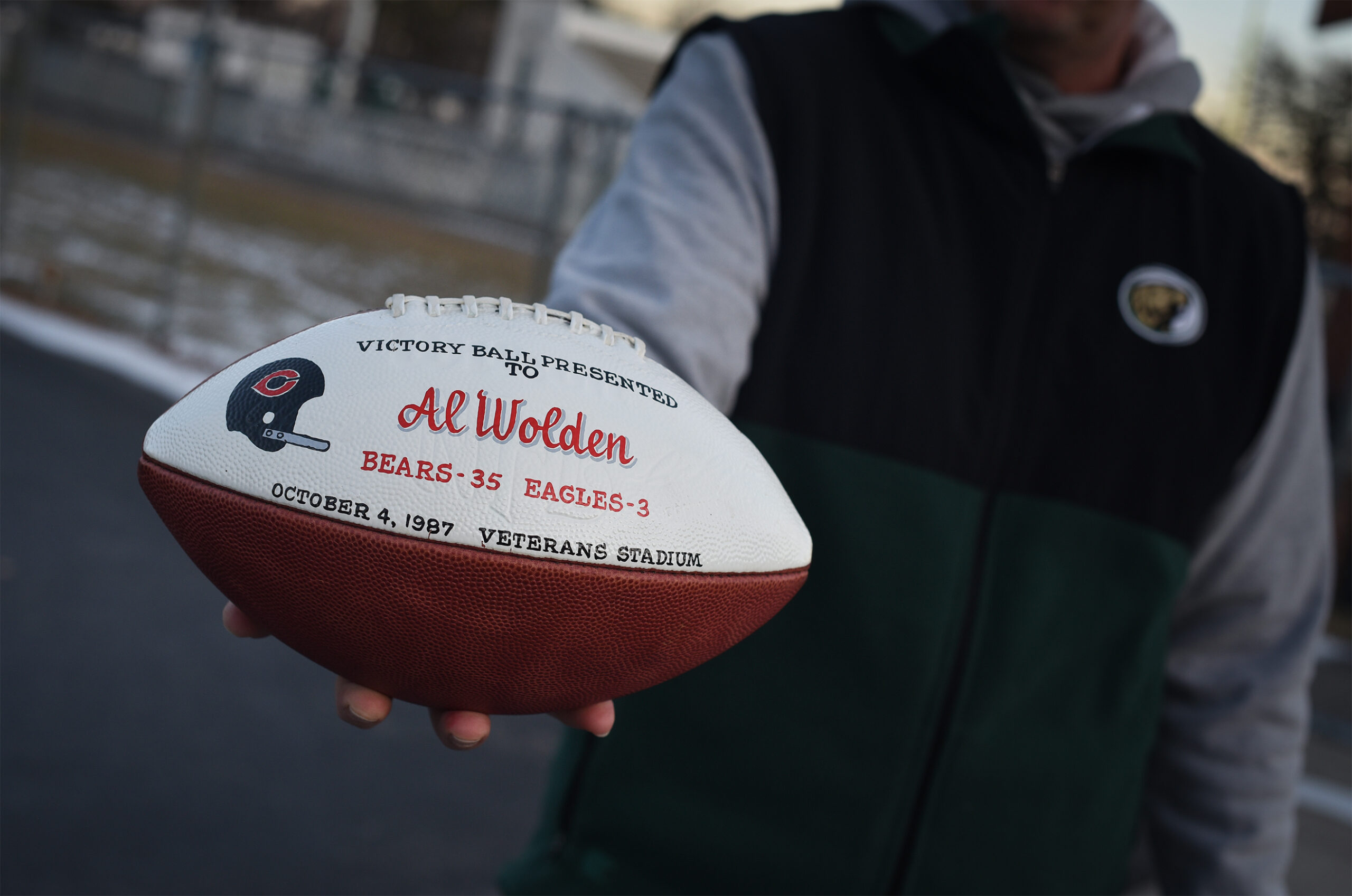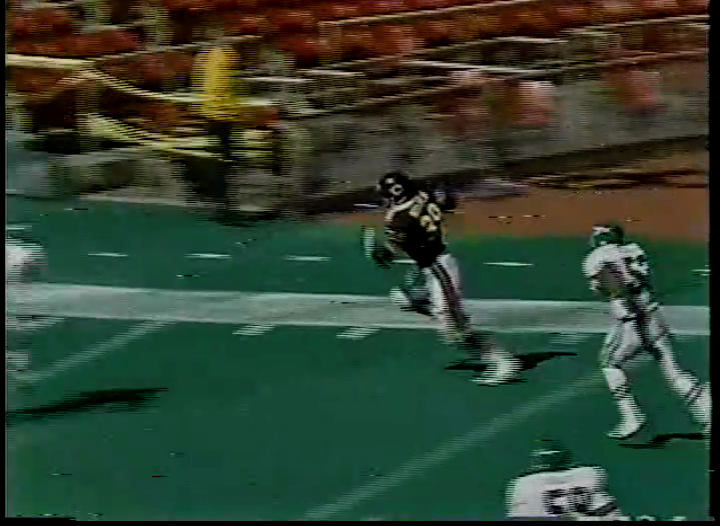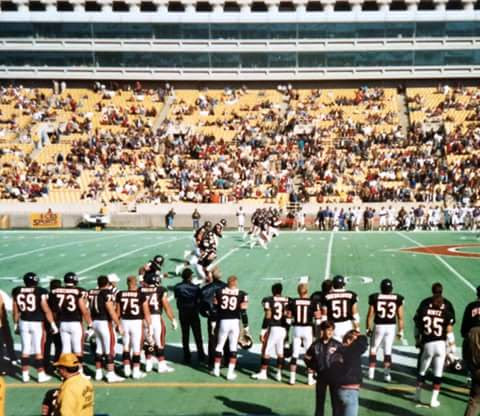
By The Bemidji Pioneer
Published 5:05 a.m. on Nov. 25, 2020
For three weeks in the fall of 1987, Al Wolden had a chance to live out a dream most football players never see become reality.
The Gonvick native and All-American running back for Bemidji State accomplished what no prior Beaver ever had: suiting up in an NFL game.
Cut out of training camp, Wolden got a second chance with the Chicago Bears under rather unusual circumstances. NFL players went on strike during the middle of the season, but the show would go on with replacement players.
Enter Wolden, who had once doubted he was good enough to even play college football.
“Everyone dreams about it in high school a little bit, but I didn’t really,” Wolden said recently when revisiting his foray into pro football. “I was more of a basketball player. I had the build. I was a little slimmer.”
He stuck to football, rewrote the BSU record books and earned an NFL contract, all while crossing paths with Walter Payton and Mike Ditka along the way.
Camp with the Bears
By the time Wolden left BSU, he’d racked up 2,822 career rushing yards and 3,790 all-purpose yards from 1983-86, both program records at the time. He estimates a dozen NFL teams scouted him, and his agent speculated he’d be a potential late-round draft pick, or that he’d at least have a good shot at landing a free agent contract.
The draft came and went, and when it came down to signing a free agent deal, Wolden picked the Bears over the Saints so he’d be closer to home. It didn’t hurt they also offered a larger signing bonus.
After making it through spring minicamp, he and the other rookies spent July learning a two-inch thick playbook before the rest of the Bears arrived for training camp.
The ‘87 Bears still featured many pieces of their Super Bowl-winning team from two years prior, headlined by the Monsters of the Midway defense, and quarterback Jim McMahon -- who was now backed up by rookie Jim Harbaugh.
Most notably, 1987 marked the final training camp for legendary running back Walter Payton, the veteran of a Chicago backfield that now included Wolden.
“I learned a lot from Walter Payton,” Wolden said. “He was a player then, but he was almost like a coach on the field with the younger players.”
Roaming the sidelines was the iconic Mike Ditka, then in his sixth of 11 seasons coaching Chicago.
“He reminded me of my high school coach,” Wolden said. “We got along real good. Pretty fiery, but then on the other hand, he was a great coach and had a sense of humor. He was a fun coach to be around. He did lose his temper a little now and then. … If you weren’t giving it your absolute best, you were going to hear about it.”
Wolden was cut in late August, spurring a return to Bemidji where he signed up for classes to finish his degree, his NFL dreams now on hold.
Only weeks later, a labor dispute prompted NFL players to strike after Week 2. Wolden was suddenly offered another chance.
“The next thing you know, I got some kind of a FedEx message asking if I’d be interested in playing some more football with the Bears again,” Wolden recalled.
Team owners brought in replacement players, many of whom, like Wolden, had been cut in training camp.
“I was glad to have another shot with them,” Wolden said. “I was glad that they called me because I already knew the playbook.”
NFL debut in Philly
Wolden and his teammates were thrown into the deep end with little time to waste once they arrived in Chicago in late September. Week 3 games were canceled, but the replacements had barely a week to prepare for their first game at the Eagles on Oct. 4.
The decision to continue the season with replacement players was not a particularly popular one among fans. Players were viewed as “scabs” for crossing the picket line, especially by union supporters in cities like Philadelphia. Only 4,074 spectators showed up to see the Bears and Eagles clash at Veterans Stadium while picketers protested outside.
Before joining the team, Wolden consulted his father, a longtime union member who worked on the railroad on the Iron Range.
“I said, ‘Dad, what do you think about all this and the strike? I’ve got a chance to play. What do you think?’” Wolden said. “And he was like, ‘Yeah, go for it. Those guys make enough money.’ He basically didn’t have a problem with it.”
The “Spare Bears” as they were known in the Chicago press, featured former Minnesota Gopher Mike Hohensee at quarterback. Behind him on the depth chart was future Super Bowl champion coach Sean Payton.
Wolden played on special teams and served as backup fullback during the 24-day strike, compiling a modest stat line of two carries for eight yards with one reception of 26 yards.
A replay review robbed the ex-Beaver of a touchdown in Philadelphia, but he cleared a path to the end zone for tailback Chris Brewer one play later.
“I caught a little pass out in the flat. I took it to the goal line and thought I was in, but it got called back,” Wolden said. “My knee had touched and the ball was a little bit short of the goal line.”
The Bears routed the Eagles 35-3 and then rolled to a 27-7 win over the Vikings at Soldier Field one week later. Not long after a narrow 19-17 home loss to New Orleans, Wolden learned the strike was over, as was his time in Chicago.
“I was really hoping they’d keep me around,” he said. “I wanted to keep playing. I wish it would have kept going a couple more weeks to be honest.”
Return home
Following his three weeks with the Bears, Wolden returned to Bemidji State and completed his degree. He earned a minicamp invitation from the Jets the following spring, but got cut.
He has since become a longtime educator in the area, teaching first at Cass Lake and now at Red Lake, where he has spent the past 22 years. He currently teaches middle school physical education and commutes from his home in Bemidji.
Thirty-three years after his NFL stint, the Bears still make time to send Wolden something special every year on his birthday. This year, he even received a brand-new jersey bearing his name and No. 39.
It’s no wonder he still considers himself to be as much of a Bears fan as he is a Vikings fan.
“I enjoyed my time there. The Bears are a special organization,” he said. “Like look at me now. (Played in) training camp, played a little bit during the season, and still every year on my birthday they will send me a card and a nice little gift. … What teams do that? That’s really cool.”
Only two other Beavers have followed in Wolden’s NFL footsteps: Brian Leonhardt, a tight end for Oakland and San Francisco from 2013-15, and Gunner Olszewski, who can currently be found playing wide receiver and returning kicks in his second season with the Patriots. That’s not to mention Bemidji State alums before them, AFL/NFL draftees Dave Odegarrd (Oilers, 1966) and John Redebough (Browns, 1970), who took their shots at pro football.
“I feel honored,” Wolden said of being the first from the program to play in an NFL game. “There were many, many great players when I played and before I played. It feels like an honor to at least get my foot in the door and get a legitimate chance to make a team.”
Written by Austin Monteith

KEEP READING:






